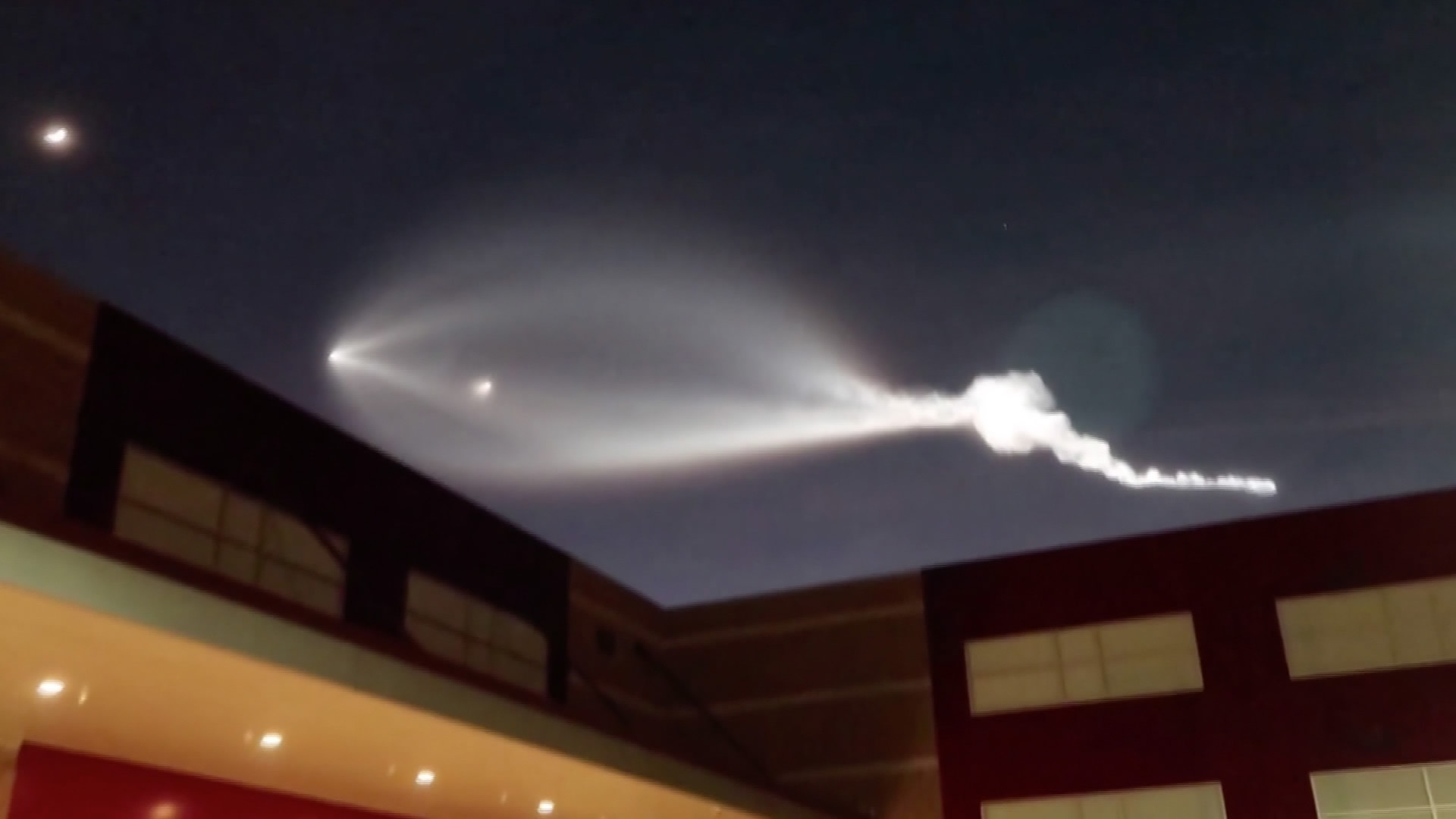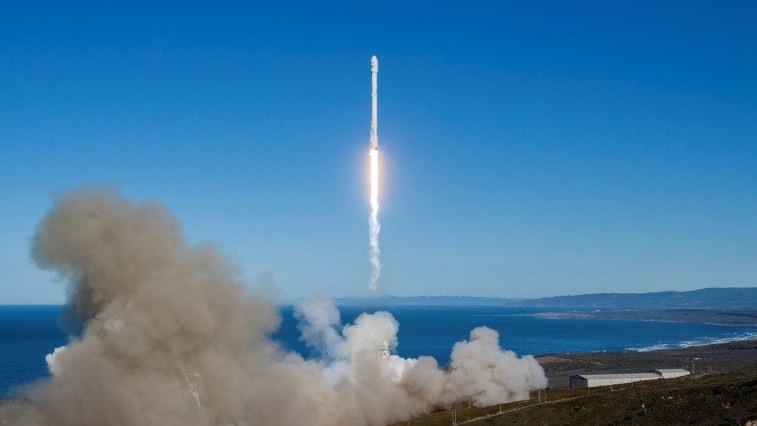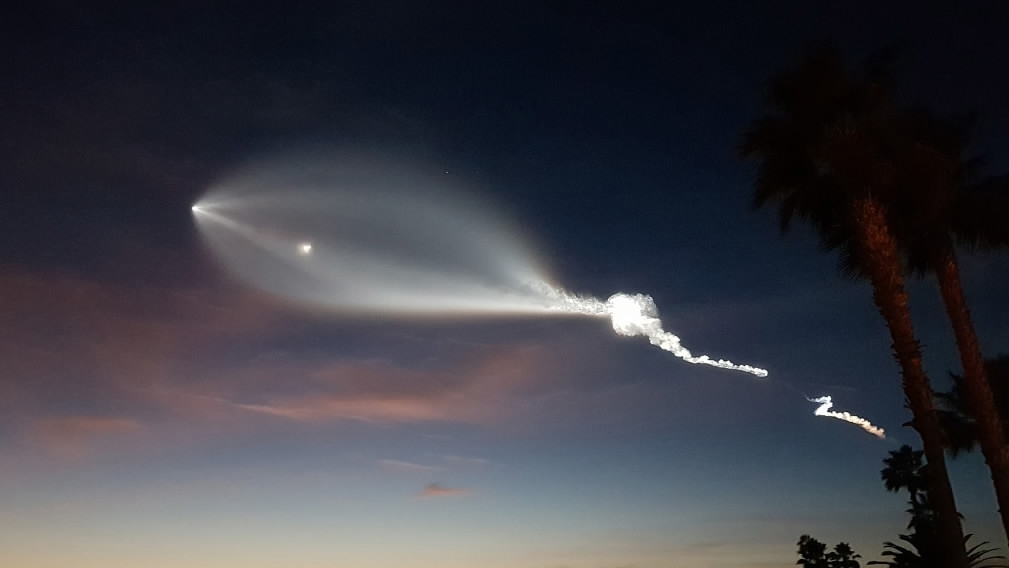
Space
22:08, 23-Dec-2017
SpaceX sends 10 satellites into orbit, lighting up the sky

US private spaceflight company SpaceX launched a recycled Falcon 9 rocket and sent another 10 satellites from Iridium Communications Inc. into orbit Friday night, as it is waiting for more next year.
The two-stage Falcon 9 booster lifted off from Space Launch Complex 4E (SLC-4E) at Vandenberg Air Force Base in California at about 5:27 p.m. local time (0127 GMT, Saturday), creating a streak of light visible to many people across Southern California.

SpaceX launched a recycled Falcon 9 rocket and sent another 10 satellites from Iridium Communications Inc. into orbit on December 22, 2017. /Photo via AFP
SpaceX launched a recycled Falcon 9 rocket and sent another 10 satellites from Iridium Communications Inc. into orbit on December 22, 2017. /Photo via AFP
The launch was visible across most of southern California, which was treated to a spectacular light show as the rocket streaked across the sky.
Many people pulled their cars over to take photos and videos of the sight. Witnesses posted their photos on social media, with many wondering if it was an Unidentified Flying Object (UFO).
In June, the Falcon 9's first stage was used to send ten satellites for Iridium Communications Inc.'s next-generation global satellite constellation, Iridium NEXT, which will ultimately include 81 satellites.

Screenshot via Twitter
Screenshot via Twitter
"It was definitely aliens," SpaceX founder Elon Musk wrote jokingly on Twitter, responding to one person who said the launch sparked an "alien debate."
Deployment of the ten Iridium NEXT satellites began an hour after the launch, with the entire process taking about 15 minutes.
Friday's launch was the fourth set of ten launched by SpaceX, which brings the total number of Iridium satellites now in orbit up to 40.
The company is scheduled to launch 75 of the 81 in the NEXT system. Its first launch occurred in January, followed by the second in June and the third in October. The company plans to have a total of 75 satellites launched into orbit by mid-2018.
Iridium is the only mobile voice and data satellite communications network that spans the entire globe, including across oceans, airways and polar regions.

UFO-like rocket created a "light show" in the sky of southern California. /Photo via VCG
UFO-like rocket created a "light show" in the sky of southern California. /Photo via VCG
According to Iridium, it is on track to fully replace the world's largest commercial satellite network of low-Earth orbit satellites in what will be one of the largest "tech upgrades" in history.
The satellite communications company has partnered with Thales Alenia Space for the manufacturing, assembling and testing of 81 Iridium NEXT satellites.
Iridium's next-generation global satellite constellation will deploy a cross-linked low-Earth orbit architecture, covering 100 percent of the Earth's surface. The process of replacing the satellites one by one in a constellation of this size and scale has never been completed before.
SpaceX has been reusing Falcon 9 first stages and is pursuing fully reusable rockets in an effort to lower the cost of spaceflight.
9881km
Source(s): Xinhua News Agency

SITEMAP
Copyright © 2018 CGTN. Beijing ICP prepared NO.16065310-3
Copyright © 2018 CGTN. Beijing ICP prepared NO.16065310-3